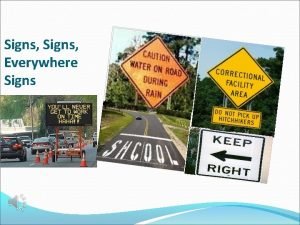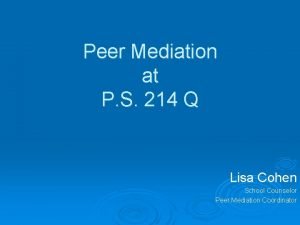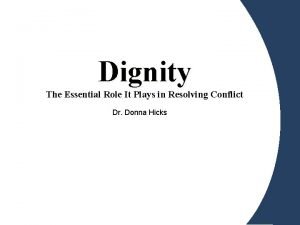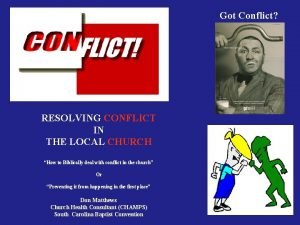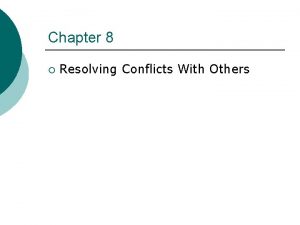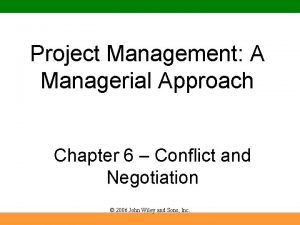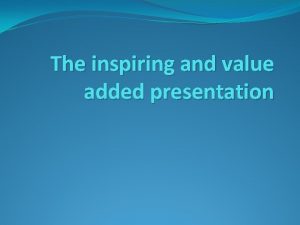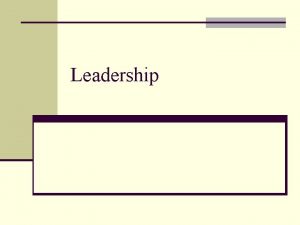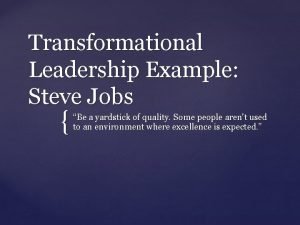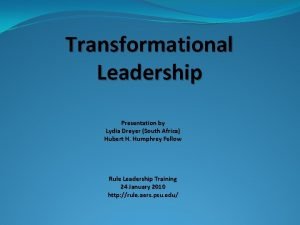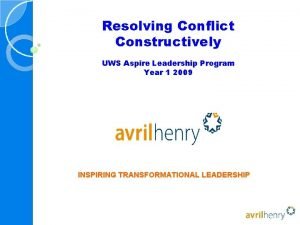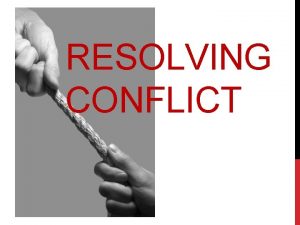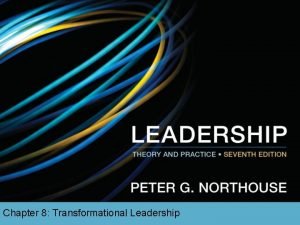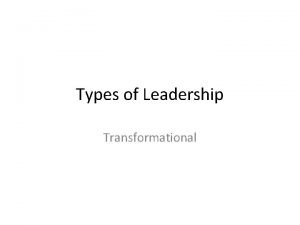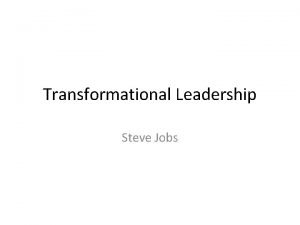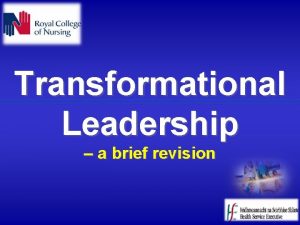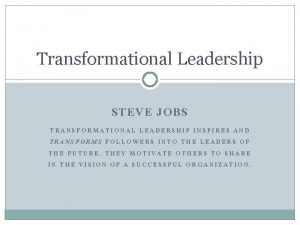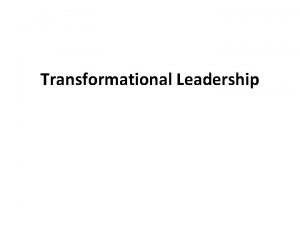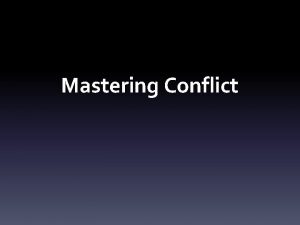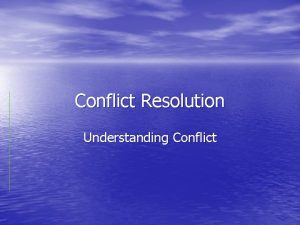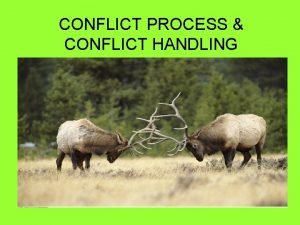Resolving Conflict Constructively INSPIRING TRANSFORMATIONAL LEADERSHIP Contents Signs













- Slides: 13

Resolving Conflict Constructively INSPIRING TRANSFORMATIONAL LEADERSHIP

Contents Signs of Poor Conflict Management Signs of Constructive Conflict Management Win/Win Approach Creative Response – Problems or Challenges? Demonstrating Empathy Appropriate Assertiveness Managing Emotions Resolving the Conflict

Signs of Poor Conflict Management Anxiety Procrastination Confusion Loss of Productivity Resentment Stress Illness Denial Withdrawal Suppressed Anger Source: Everyone Can Win, H. Cornelius & S. Faire

Signs of Constructive Conflict Management Feeling of Power Sense of Smooth Running Efficiency Openness Teamwork Good Health Vitality Fun Environment Sense of Achievement Good Relationships TGIM!!!! Source: Everyone Can Win, H. Cornelius & S. Faire

Win/Win Approach The Win/Win Approach = “I want to win AND I want you to win too. ” The Win/Win Approach requires you to find out more about the situation first and explore the options before finalising the solution The Win/Win Approach steps are: Find out why they need what they want Find out where the differences dovetail What are the options? Co-operate Source: Everyone Can Win, H. Cornelius & S. Faire

Creative Response – Problems or Challenges? The Creative Response to Conflict is about turning problems into opportunities. The Steps are: Step 1: Step 2: Step 3: Step 4: Reaction or Response Acknowledge the Situation for What It Is What Can You Learn from the Situation Turn Conflict into Opportunity As you think, so it becomes

Demonstrating Empathy If you want effective relationships, your communication must demonstrate to people that you: Respect them as equals and won’t dominate them Respect their opinions and won’t try to manipulate them to seeing it your way Respect and value their decisions and won’t undermine them Respect their values and experience Empathy ‘Blocks’: Domination, manipulation, disempowerment and denial Source: Everyone Can Win, H. Cornelius & S. Faire

Appropriate Assertiveness Good Conflict Resolution requires you to be able to state your case without causing the other person to be defensive. Explain how things are for you, rather than what others should or shouldn’t do. Use “I” statements, rather than using “You ……. ” Are your “I” statements CLEAN and CLEAR? What do you do when faced with Conflict – Fight, Flight or Flow?

Managing Emotions means: Don’t indulge Don’t deny Do use emotions to build richer relationships Emotions are mind, body and energy events Do you need to release pent up feelings? Source: Everyone Can Win, H. Cornelius & S. Faire

Managing Emotions Unravelling a problem releases energy Use focusing to find the core of the problem Use anger as a fire for change. . . positive change! The conclusions we draw about someone else’s behaviour are often the triggers for our own excessive emotional reactions Source: Everyone Can Win, H. Cornelius & S. Faire

Resolving the Conflict The questions to ask in resolving conflict are: What is the issue, problem or conflict? Who are the important parties in this conflict? What interests underlie the problem? Write down each person’s needs Write down each person’s anxieties or fears What anxieties/fears are influencing behaviour? What areas do we have in common? Source: Everyone Can Win, H. Cornelius & S. Faire

Resolving the Conflict From these answers we can map the conflict Options can then be designed: What are all the possibilities? Which options give us both more of what we want? Source: Everyone Can Win, H. Cornelius & S. Faire

Avril Henry Managing Director Level 4, Suite 4. 13 55 Miller Street Pyrmont NSW 2009 Phone: 02 9660 2400 Fax: 02 9660 2411 Email: enquiries@ahrevelations. com Web: www. avrilhenry. com. au
 Transactional vs transformational
Transactional vs transformational Smooth running
Smooth running All traffic signs and meanings
All traffic signs and meanings Resolving conflict creatively program
Resolving conflict creatively program Dignity: the essential role it plays in resolving conflict
Dignity: the essential role it plays in resolving conflict Managing conflice in the local church
Managing conflice in the local church Resolving conflict meaning
Resolving conflict meaning Tucker turtle pdf
Tucker turtle pdf The favored technique for resolving conflict is *
The favored technique for resolving conflict is * Tower garden juice plus
Tower garden juice plus Elements of inspiring
Elements of inspiring Transformational leadership factors the 4 i's
Transformational leadership factors the 4 i's Steve jobs transformational leadership
Steve jobs transformational leadership Transformational leadership presentation
Transformational leadership presentation


